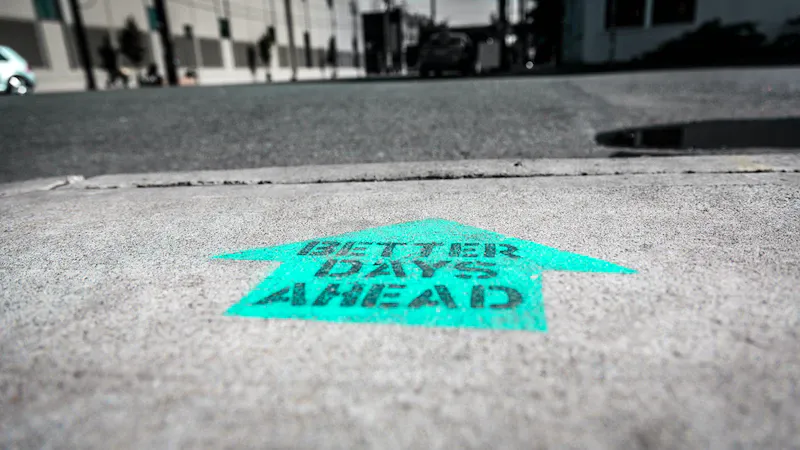Coming Out of the Closet: A Universal Experience

The Universal Experience of Living in a Closet
Living in a closet is a universal experience. We all have our own closets, whether they are filled with secrets or fears, and we all know what it feels like to be trapped inside. Coming out of a closet is a difficult task, and it can be scary to reveal who you truly are to the world.
Throughout my life, I have lived in a few closets myself. My walls might have been rainbow-colored, but on the inside, it was just as dark and cramped as any other closet. I know that we all have our own unique stories and struggles, but when it comes down to it, the experience of being in a closet and coming out of it is universal.
One thing that is important to understand is that hard conversations are a part of life, and we all have them. Whether it’s telling someone you love them for the first time or revealing a difficult diagnosis, we all have to face tough conversations. The experience of coming out of a closet is just another example of this. It’s scary, and we hate it, but it needs to be done.
It’s important to have empathy when having these hard conversations. We never know what someone else might be going through, and it’s crucial to meet them where they are. Sometimes, it’s easier to point out where someone else falls short rather than acknowledging their effort. But, we need to understand that everyone is trying their best, and that starting and having that conversation is their own coming out of the closet experience.
In my experience, there are three principles to keep in mind when coming out of a closet. Firstly, be authentic. Take off your armor and be yourself. Secondly, be direct. Rip off the Band-Aid and just say it. Lastly, be unapologetic. You are speaking your truth, and never apologize for that.
We are all bigger than our closets, and they are no place for a person to truly live. It can be a lonely and isolating experience to live in a closet, but it’s important to remember that we are not alone. There are others out there peering through the keyholes of their own closets, looking for the next brave soul to open the door. Let’s be that person for them and show the world that we are bigger than our closets.
Hard Conversations are a Part of Life, and We All Have Them
Throughout our lives, we all have to face tough conversations. Whether it’s telling someone you love them for the first time or revealing a difficult diagnosis, hard conversations are a part of life. And sometimes, the hardest conversations are the ones we have with ourselves.
Living in a closet is just one example of this. It’s a hard conversation that many people have to face at some point in their lives. It’s scary and it’s uncomfortable, but it’s something that needs to be done. It’s important to understand that the experience of being in a closet and coming out of it is universal. We all have our own unique stories and struggles, but at the end of the day, we all know what it feels like to be trapped inside.
Having empathy when having these hard conversations is crucial. We never know what someone else might be going through, and it’s important to meet them where they are. It’s easy to point out where someone else falls short rather than acknowledging their effort. But, we need to understand that everyone is trying their best, and that starting and having that conversation is their own coming out of the closet experience.
It’s also important to remember that hard is not relative. Hard is hard. We shouldn’t compare our hard to someone else’s hard, as it doesn’t help anyone. It’s not a competition. We need to stop ranking our hard against everyone else’s to make ourselves feel better or worse about our own struggles. At the end of the day, we all have our own battles to fight, and they all matter.
When it comes to coming out of a closet, there are three principles to keep in mind. Firstly, be authentic. Take off your armor and be yourself. Secondly, be direct. Rip off the Band-Aid and just say it. Lastly, be unapologetic. You are speaking your truth, and never apologize for that.
We all have our own closets, whether they are filled with secrets or fears. But, we need to understand that living in a closet is no place for a person to truly live. It can be a lonely and isolating experience, but we need to remember that we are not alone. There are others out there who are going through the same thing. It’s important to reach out and connect with others who understand. Hard conversations are a part of life, but they don’t have to be faced alone.
There is No Ranking for What is Harder - It’s Just Hard
When it comes to hard conversations, there is no ranking for what is harder. It’s important to understand that everyone’s struggles and experiences are different, and what might be difficult for one person might not be for another.
It’s easy to fall into the trap of comparing our hard to someone else’s hard. But, this doesn’t help anyone. It doesn’t make our struggles any easier, and it doesn’t make someone else’s any less significant. Hard is hard, no matter what it is.
We need to stop ranking our hard against everyone else’s to make ourselves feel better or worse about our own struggles. It’s not a competition. Instead, we need to focus on empathizing with others and acknowledging the effort they put in.
It’s important to remember that we all have our own battles to fight, and they all matter. We shouldn’t downplay someone else’s struggle just because it might not seem as difficult as our own. We never know what someone else might be going through, and it’s important to meet them where they are.
Whether it’s coming out of the closet or telling someone about a difficult diagnosis, we all have our own hard conversations to face. But, we need to remember that we’re not alone in this. It’s important to reach out and connect with others who understand what we’re going through.
Hard conversations can be scary and uncomfortable, but they are a part of life. We need to face them head-on and understand that there is no ranking for what is harder - it’s just hard. What’s important is that we support and empathize with each other, and work towards creating a more compassionate and understanding world.
Coming Out of the Closet is Scary, But It Needs to be Done
Coming out of the closet can be one of the scariest things a person can do. Whether it’s coming out as LGBTQ+, sharing a difficult diagnosis, or having a hard conversation with a loved one, it’s never easy to be vulnerable and share a part of ourselves that we might have kept hidden.
However, as difficult as it may be, coming out of the closet is something that needs to be done. Living in a closet can be suffocating and isolating. It can feel like we’re living a double life, where we have to constantly monitor what we say and how we act to avoid being discovered.
While coming out of the closet can be scary, it can also be liberating. It’s a chance for us to finally be our true selves and live authentically. It’s a chance to connect with others who might be going through similar experiences and to find a sense of community.
It’s important to remember that coming out of the closet is a personal journey and there is no right or wrong way to do it. Some people might choose to come out to everyone they know, while others might only come out to a select few. It’s important to do what feels right for you and to take things at your own pace.
It’s also important to remember that coming out is not a one-time event. It’s a continuous process, where we might have to come out to new people as we go through life. But, with each step we take, we become stronger and more confident in who we are.
So, if you’re feeling scared about coming out of the closet, know that you’re not alone. It’s a difficult journey, but one that can lead to a more fulfilling and authentic life. Remember to take things at your own pace and to surround yourself with supportive and understanding people.
The Universal Experience of Being In and Coming Out of the Closet
Regardless of the specifics of each individual’s experience, one thing is certain: the process of being in the closet and coming out of it is universal. It’s a difficult and scary experience that we all share in some form or another. Whether it’s telling someone you love them for the first time, announcing a pregnancy, or revealing a cancer diagnosis, every closet is a space of vulnerability that requires a hard conversation. And while our circumstances may vary greatly, the underlying fear and anxiety are the same.
The speaker in the original video shared a personal anecdote about her experience of being mistaken for a boy while working at a diner, and how she had to summon the courage to have a hard conversation with a curious child. She later explains that she has lived in many different types of closets in her life, and while the walls may have been rainbow-colored in some instances, the experience of being closeted is ultimately the same for all of us.
In essence, we all have our own closets to come out of, and it’s a universal struggle that requires empathy and understanding from those around us. We need to support each other and recognize that hard conversations are an inevitable part of life. By doing so, we can create a world where no one feels like they have to hide who they are, and where everyone can live authentically and without fear.
Empathy is Key in Hard Conversations
When it comes to having difficult conversations, empathy is crucial. It’s important to understand that we all have different experiences and perspectives, and what may be hard for one person may not be as difficult for another. Instead of judging or ranking someone’s struggles, we should strive to meet them where they are and listen with an open mind and heart.
The ability to empathize with others can make a world of difference in how we approach these hard conversations. It allows us to see things from their point of view and acknowledge their feelings without judgment or invalidation. This creates a safe and supportive environment where people can feel comfortable sharing their experiences and feelings.
During my time working at a local diner, I often had to have hard conversations with young children who questioned my gender identity. It was a scary and uncomfortable situation, but by using empathy and understanding, I was able to handle these conversations with grace and kindness.
In the end, empathy is what allows us to connect with others on a deeper level and build meaningful relationships. It’s a skill that can be developed with practice and patience, and it can truly make a difference in how we navigate the hard conversations that inevitably come our way.
Three Principles for Coming Out
When it comes to coming out, it can be difficult to know where to start. The speaker in this talk shares three principles that can be helpful for anyone who is ready to take that step.
The first principle is to be authentic. This means taking off the armor and being yourself, even if that means being vulnerable. It can be scary to show your true self to the world, but it’s the only way to truly be happy.
The second principle is to be direct. Rip off the Band-Aid and say it. If you know you’re gay, just say it. Don’t give people false hope by saying you might be gay or that you’re not sure. Being direct might be uncomfortable, but it’s necessary for everyone involved.
Finally, be unapologetic. You are speaking your truth, and you should never apologize for that. Sure, some people might not understand or might even be hurt by what you say, but that’s their problem, not yours. You can’t control how others react, but you can control how you present yourself.
These three principles may seem simple, but they can be powerful tools for anyone who is coming out. By being authentic, direct, and unapologetic, you can take control of your own story and show the world who you really are.
We Are More Than Our Closets
Living in the closet can be a stifling experience, one that leaves us feeling as though we’re trapped and unable to be our true selves. But it’s important to remember that we are more than our closets, and we deserve to live life on our own terms.
Being in the closet can cause a lot of stress and anxiety, and it can be hard to imagine coming out and facing the potential rejection or judgment of others. But staying in the closet is not a sustainable way to live. It’s essential that we find the strength to be true to ourselves and live an authentic life.
While coming out can be a daunting experience, it’s important to remember that we are not alone. Many others have gone through this process before us and have come out the other side stronger and happier. And when we do come out, we may find that the people in our lives are more accepting and supportive than we initially thought.
So let’s remember that we are bigger than our closets. Our closets do not define us, and they should not limit us. It’s time to step out into the world as our authentic selves and hug all that life has to offer.
Conclusion
Coming out of the closet can be a challenging and scary experience, but it is essential for individuals to be true to themselves. Everyone’s journey is unique, and there is no ranking for what is harder because it’s just hard. However, by being authentic, direct, and unapologetic, individuals can take control of their lives and start living genuinely. Empathy is also crucial when having hard conversations, as it allows individuals to connect on a deeper level and build stronger relationships.
Living in a closet is no place for a person to truly live, and we are all bigger than our closets. It’s important to remember that the experience of being in and coming out of the closet is universal, and we can all learn from each other’s experiences. By sharing our stories and supporting one another, we can create a more inclusive and accepting world where everyone is free to be themselves.



